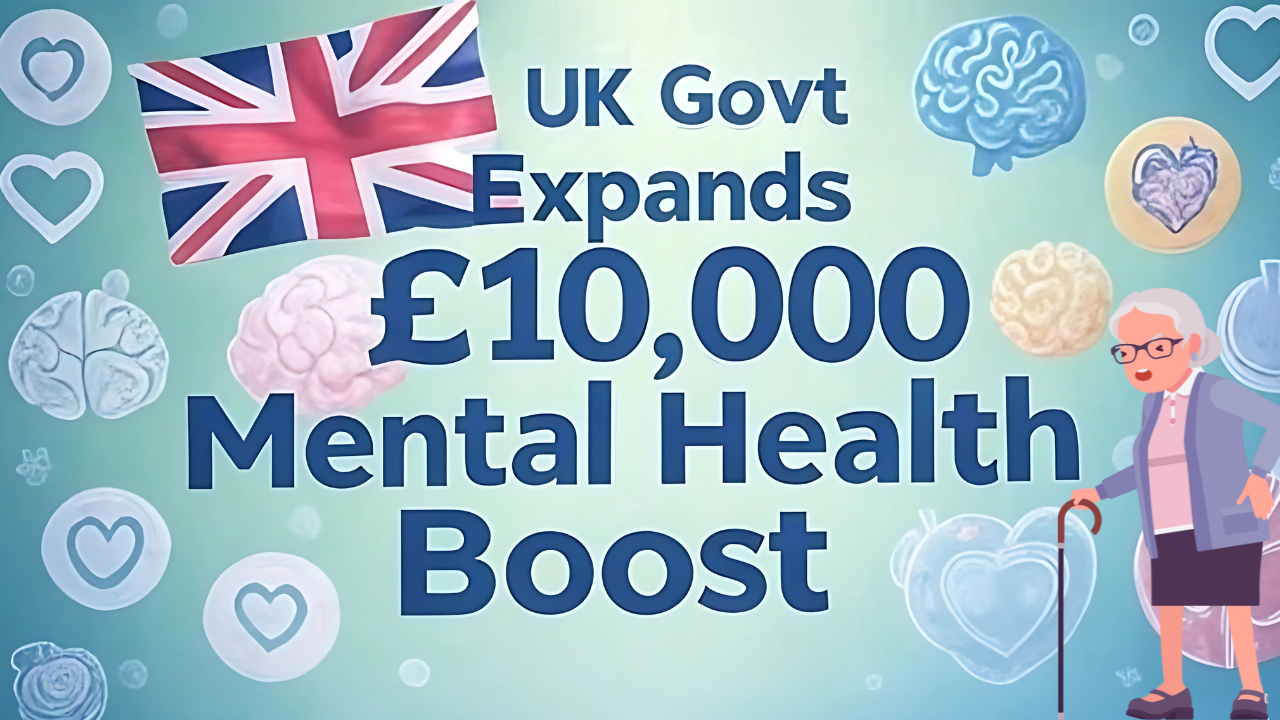Britain’s educational landscape is experiencing a transformative shift as mental health support becomes accessible to almost one million additional school pupils. This groundbreaking initiative represents the government’s commitment to addressing the mental health crisis affecting young people across the nation.
The expansion demonstrates how proper investment in student wellbeing can create lasting change. Schools nationwide are witnessing improved attendance rates and better behavioral outcomes as a direct result.
The Scale of Mental Health Support Expansion
Reaching Six in Ten Students Nationwide
The government’s ambitious rollout will cover six in ten children across the country by March 2026. This massive expansion prioritizes areas with the greatest need, ensuring vulnerable students receive support first.
NHS identification systems help determine which regions require immediate attention. The strategic approach ensures resources reach communities where mental health challenges are most prevalent.
Professional Teams Making Real Differences
Mental Health Support Teams consist of trained specialists who understand young people’s unique challenges. These professionals offer various interventions, from group resilience-building sessions to individual anxiety management support.
Direct collaboration between school staff and NHS services creates a comprehensive support network. Teachers receive professional guidance, reducing their workload while improving student outcomes significantly.
Breaking the Cycle of Poor Attendance and Mental Health
Research-Backed Connection Between Wellbeing and School Attendance
Recent research reveals a direct correlation between mental health severity and school absence rates. Students experiencing mental health difficulties are significantly more likely to miss valuable learning opportunities.
Poor attendance creates a destructive cycle that affects academic achievement and future prospects. Addressing mental health issues early prevents this downward spiral from taking hold.
Early Intervention Strategies
Early identification of mental health concerns allows for timely intervention before problems escalate. Support teams work proactively to address mild to moderate issues in their initial stages.
This preventative approach reduces the likelihood of conditions becoming severe and requiring intensive treatment. Students can remain in their educational environment while receiving appropriate support.
Government Investment and Funding Commitments
£680 Million Boost for Children’s Mental Health Services
The government has allocated an additional £680 million specifically for transforming children’s mental health services. This substantial investment demonstrates the priority placed on young people’s wellbeing.
Funding supports hiring more qualified staff and delivering additional talking therapies nationwide. The investment aims to reduce waiting lists and improve access to essential services.
Comprehensive Support Beyond Mental Health
Investment extends beyond mental health to include 8,500 additional mental health workers across various services. The recruitment drive addresses staffing shortages that have historically limited service capacity.
Additionally, 6,500 new teachers will ensure every classroom benefits from excellent educational leadership. This dual approach supports students both academically and emotionally.
Addressing Attendance and Behavioral Challenges
Intensive Support for Struggling Schools
A new program will provide intensive support for 500 schools facing significant attendance and behavioral challenges. These targeted interventions focus on the most vulnerable educational institutions.
Attendance and behavior hubs built around 90 high-performing schools will share expertise and successful strategies. This peer-to-peer support model leverages proven approaches to create wider improvements.
Ambassador Program Connecting Schools and Government
New attendance and behavior ambassadors will serve as vital links between educational institutions and government support. These professionals identify specific challenges and work collaboratively toward practical solutions.
The ambassador role ensures schools receive appropriate assistance tailored to their unique circumstances. This personalized approach recognizes that different communities face distinct challenges.
Real-World Impact and Success Stories
Three Million Additional School Days
Government initiatives have already generated three million more school days compared to the previous year. This remarkable improvement demonstrates the effectiveness of coordinated mental health and attendance strategies.
Increased school attendance directly correlates with improved academic outcomes and better life prospects. Students who attend regularly are more likely to achieve their educational potential.
School Leadership Testimonials
Gary Lloyd, Head Teacher at The Academy of St Nicholas in Liverpool, describes having access to mental health support as “making such a difference.” His school has benefited from professional mental health services for over a year.
The presence of trained professionals provides faster support for students while reducing staff burden. This collaborative approach improves both student happiness and overall school attendance rates.
Long-Term Vision and Future Planning
Universal Access by 2029/30
The government’s Plan for Change commits to providing all pupils with mental health support by 2029/30. This ambitious timeline ensures comprehensive coverage across the entire educational system.
Universal access will eliminate geographical disparities in mental health support availability. Every student, regardless of location or background, will have access to professional mental health assistance.
Connecting Mental Health with Educational Excellence
RISE teams will work alongside mental health initiatives to drive up educational standards nationwide. This integrated approach recognizes the interconnection between wellbeing and academic achievement.
The comprehensive strategy addresses multiple factors affecting student success simultaneously. Mental health support, attendance improvement, and educational excellence work together to create optimal learning environments.
Economic Impact of Mental Health Investment
Lifetime Earnings and Attendance Connection
Research shows that persistently absent secondary school pupils earn £10,000 less at age 28 compared to students with strong attendance. This significant difference highlights the long-term economic impact of educational engagement.
Investing in mental health support creates substantial economic returns through improved lifetime earnings. Students who receive appropriate support are more likely to achieve their full potential.
Prevention Versus Treatment Costs
Early intervention through school-based mental health support is significantly more cost-effective than later treatment. Preventing mental health conditions from becoming severe reduces long-term healthcare costs.
The investment in school mental health teams represents smart economic planning. Addressing issues early prevents more expensive interventions becoming necessary later.
Supporting Vulnerable Communities First
Prioritizing High-Need Areas
The rollout strategy specifically targets areas with the highest levels of need first. This approach ensures vulnerable communities receive support before mental health problems become entrenched.
NHS data helps identify regions where mental health challenges are most prevalent. Targeted deployment of resources maximizes the positive impact on student wellbeing.
Whole School Approach to Mental Health
Mental Health Support Teams promote a comprehensive school-wide approach to student wellbeing. This strategy ensures mental health considerations are integrated into all aspects of school life.
Staff training and support enable teachers to recognize mental health concerns early. The whole school approach creates an environment where student wellbeing is everyone’s responsibility.
FAQs
How many pupils will benefit from the mental health support expansion?
Almost one million additional pupils will gain access to mental health support this year.
When will all pupils have access to mental health support?
The government plans to provide universal access to all pupils by 2029/30.
How much government funding supports this initiative?
An additional £680 million has been allocated for children’s mental health services this year.
What types of support do Mental Health Support Teams provide?
Teams offer group resilience sessions, individual anxiety management, and professional advice to school staff.
How does poor mental health affect school attendance?
Research shows direct correlation between mental health severity and likelihood of missing school.
What is the economic impact of poor school attendance?
Persistently absent secondary pupils earn £10,000 less at age 28 compared to regular attendees.
How many schools will receive intensive attendance support?
500 schools with significant attendance challenges will receive targeted intensive support.
What percentage of pupils currently have access to mental health support?
Around seven in ten secondary school pupils currently have access to Mental Health Support Teams.
How many additional mental health workers are being recruited?
The government is recruiting 8,500 additional mental health workers across children and adult services.
What are attendance and behavior hubs?
These are support networks built around 90 high-performing schools that share successful strategies with struggling institutions.

